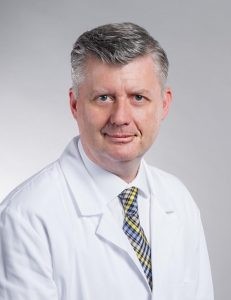 As a doctor who specializes in the care of older adults I speak regularly with the children of my patients. I noticed as I gave them advice and support, that there was no word that describes the special group of people who provide support and care for their own parents. “Caregiver” doesn’t properly encapsulate their unique position—after all, anyone can be a caregiver, but children who provide care to their parents have experiences that are unique to them, and as such they should have a word that describes them as a group. I searched around and found that there was no word that distinguished between hired caregivers, healthcare professionals, and children caring for their parents. So, I had to invent one. To that end, I interviewed linguists, speakers of other languages, doctors, social workers, and people caring for their parents, to get an idea of what to call them. Over and over I heard about the difficulties associated with watching parents lose their physical and mental abilities, and of caring for them as they gradually become more dependent. “I feel like I’m taking care of my kids again, except that my parents are never going to grow up and leave the nest. Their story will go on until they pass away,” said one of my patient’s kids.
As a doctor who specializes in the care of older adults I speak regularly with the children of my patients. I noticed as I gave them advice and support, that there was no word that describes the special group of people who provide support and care for their own parents. “Caregiver” doesn’t properly encapsulate their unique position—after all, anyone can be a caregiver, but children who provide care to their parents have experiences that are unique to them, and as such they should have a word that describes them as a group. I searched around and found that there was no word that distinguished between hired caregivers, healthcare professionals, and children caring for their parents. So, I had to invent one. To that end, I interviewed linguists, speakers of other languages, doctors, social workers, and people caring for their parents, to get an idea of what to call them. Over and over I heard about the difficulties associated with watching parents lose their physical and mental abilities, and of caring for them as they gradually become more dependent. “I feel like I’m taking care of my kids again, except that my parents are never going to grow up and leave the nest. Their story will go on until they pass away,” said one of my patient’s kids.
There is an ancient myth about the Sphinx in Egypt demanding and answer from passers by to her riddle, “What speaks with one voice but walks on four legs, and then two legs, and then three legs?” The answer was Man, because as a child he crawls, then as an adult he walks, and then in old age he uses a cane. The Sphinx understood thousands of years ago, that that as man ages, he becomes more childlike and dependent on those around him. So, if man becomes a reverse child, then those caring for him become Reverse Parents. Thus, Reverse Parenting was born.
It has been observed that maybe the name Reverse Parenting insults the elders being cared for. Well, in truth there are elders who are doing just fine and who do not need their children to care for them. Their kids are therefor not acting as Reverse Parents, they don’t need our advice, and the expression doesn’t apply to them or their parents.
Reverse Parenting clearly identifies a specific group of adults whom we serve, and it describes their journey. We are proud to be serving this unique but growing group of people caring for the most important patients in the world – their parents.